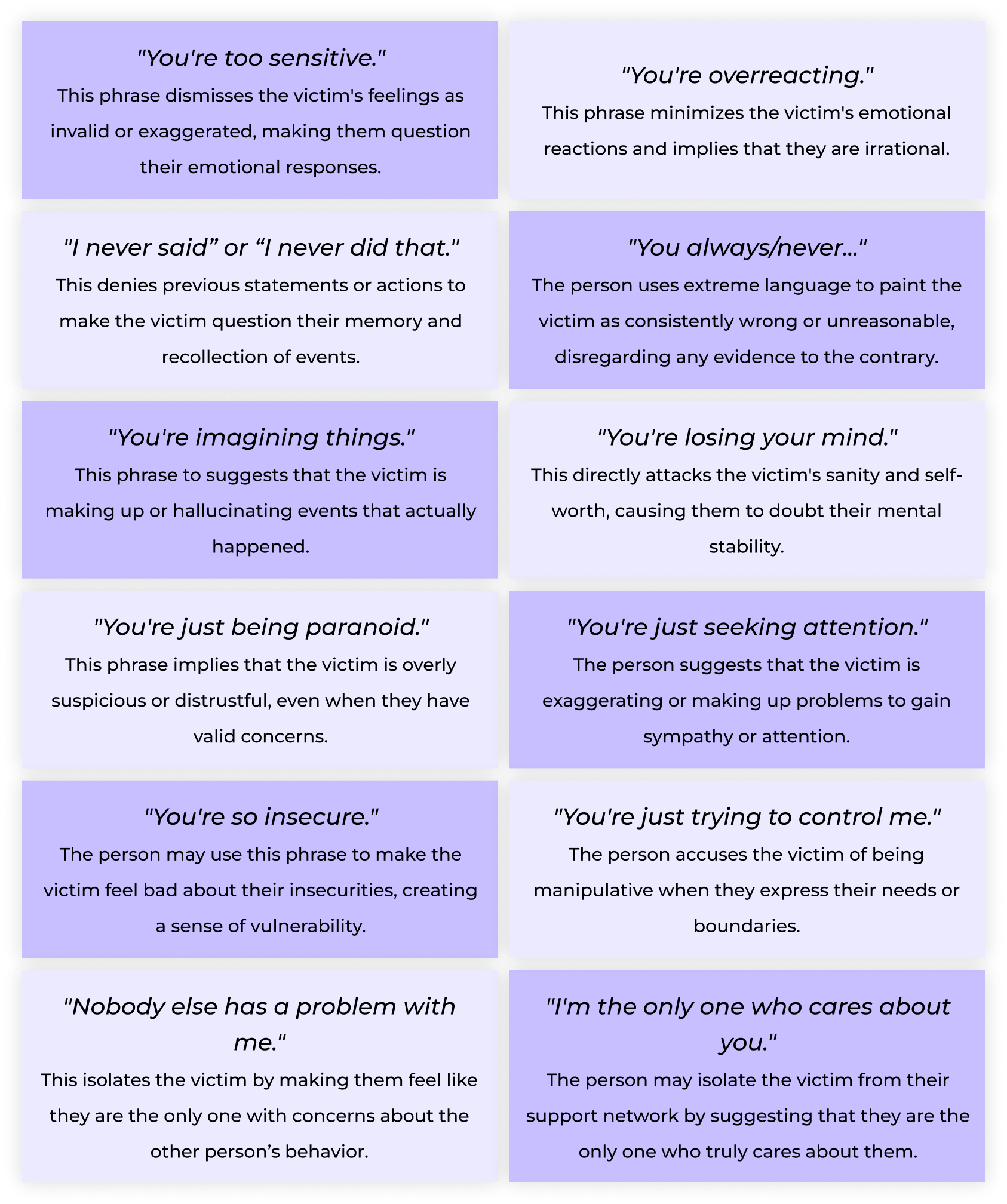Understanding Gaslighting

You can personalize the Understanding Gaslighting resource by downloading it HERE, and adding your own responses, or continue to view it below.
Gaslighting is a form of psychological manipulation and emotional abuse in which one person seeks to make another person doubt their own perceptions, memories, beliefs, or sanity, for their own gain. The goal of gaslighting is to intentionally gain control over the victim, and it can occur in various types of relationships, such as romantic, familial, or workplace relationships. Gaslighting can have serious psychological effects on the victim, including feelings of confusion, self-doubt, anxiety, and depression.
Common Forms of Gaslighting
Gaslighting typically involves various tactics aimed at undermining a person's confidence and sense of reality, such as:
- Denial: the person gaslighting denies that certain events or conversations ever took place, even when there is clear evidence to the contrary
- Minimization: the person may downplay the significance of events, emotions, or concerns, making the victim feel like their feelings or experiences are unimportant, or exaggerated
- Projection: the person gaslighting often projects their own negative qualities, behaviors, or actions onto the victim; for example, if they are being dishonest, they may accuse the victim of being deceitful
- Withholding Information: the person may deliberately withhold information or details to keep the victim in the dark and maintain control
- Countering: this involves challenging the victim's memory or recollection of events, insisting that the victim is mistaken or forgetful
- Diverting Blame: this shifts blame away from the person gaslighting and onto the victim, making the victim feel responsible for the other’s actions or feelings
- Trivializing Feelings: the person may dismiss the victim's feelings, making them feel overly sensitive or irrational
- Isolating: the person gaslighting may isolate the victim from friends, family, or support systems, making it harder for the victim to seek validation or support
Common Phrases in Gaslighting

Coping with Gaslighting
It's important for individuals who suspect they are experiencing gaslighting to seek support from friends, family, or mental health professionals. Establishing healthy boundaries, practicing self-care, and maintaining a strong support network can help victims of gaslighting regain their sense of self and well-being. One practical tool to understand if you’re being gaslit, is to track these incidents over time, and seek out feedback from others if you feel safe doing so.
You can use the editable version of this resource to add your own responses, found HERE, or use the following prompts below.
Note: if you are tracking experiences that seem like gaslighting, it is best to keep your responses in a safe and secure location.
- Write down a summary of the incident, as objectively as possible.
- What may have triggered the incident?
- What was most challenging about the incident?
- What gaslighting phrases did the person use?
- How did it make you feel? And what negative thoughts did you have about yourself?
- What advice would you give to someone who was experiencing the same thing?
- What can you do to take care of yourself right now?
Call 911 if you’re having a
mental health emergency
Text Home to 741-741 if you're in emotional
distress and need immediate support
Call or text 988 Suicide &
Crisis Lifeline. Chat service
is available at 988lifeline.org.